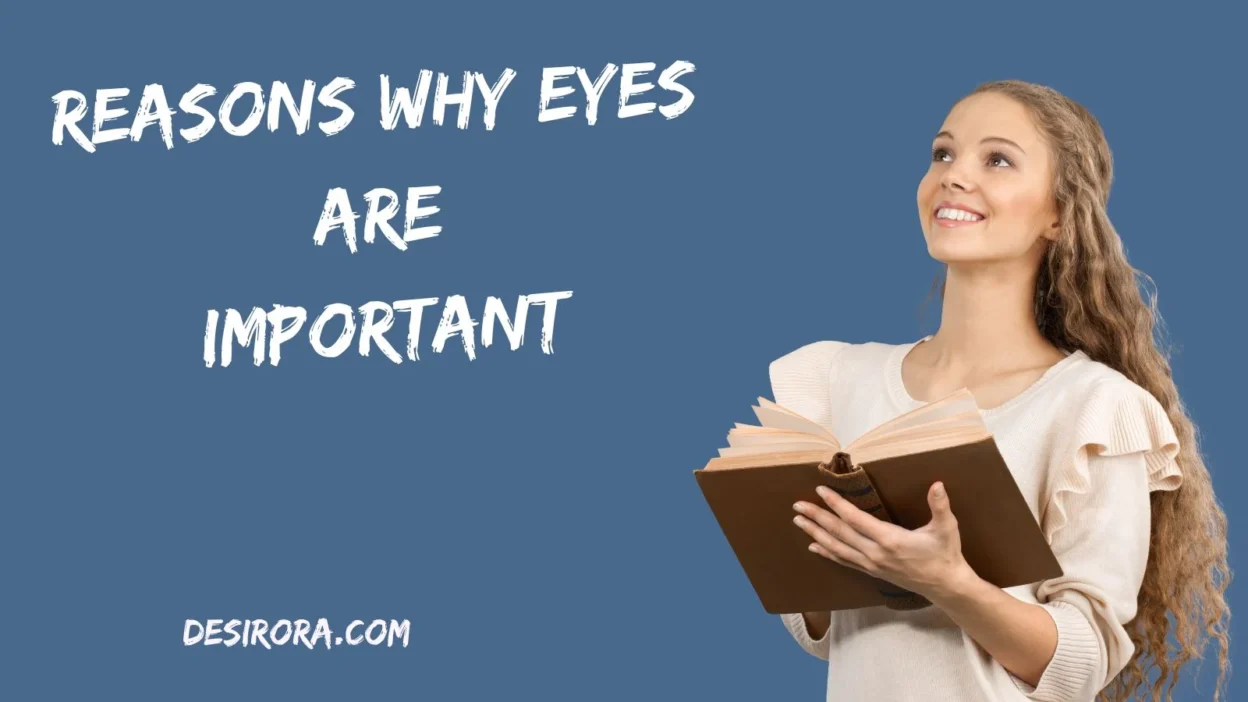Our eyes are often taken for granted—yet they’re among the most remarkable and vital organs we possess. From recognising a friend’s smile to reading a street sign or appreciating a sunset, our vision shapes much of how we experience life.
In this article, we’ll explore the many reasons why eyes are important: what they do, how they work, why they’re critical for our safety and well-being, and how you can take care of them.
The Core Function: Vision and Perception
At the most obvious level, our eyes allow us to see. But seeing goes well beyond just noticing shapes or colours.
How vision works
Here’s a simple breakdown of what happens when you open your eyes:
- Light enters through the cornea and passes through the pupil, where the iris controls how much light enters.
- The lens focuses that light onto the retina, a layer of light-sensitive cells at the back of the eye.
- The retina converts the light into electrical signals, which travel through the optic nerve to the brain.
- The brain processes those signals to create the images we “see.”
All parts of the eye—cornea, lens, retina, muscles, and nerves—must work in harmony for clear, accurate vision.
Why vision is so important
- Around 80% of our environmental impressions come from what we see.
- Vision helps us navigate the world: distinguishing obstacles, assessing distances, recognising faces, reading, driving, and working.
- When vision is impaired, many other life areas become harder—independence, mobility, communication, and even emotional well-being.
In short: your eyes aren’t just for seeing—they’re your main gateway to experiencing the world.
Beyond Sight: Other Critical Roles of Eyes
Safety and Awareness
Good vision keeps you safe. It helps detect danger—like moving vehicles, uneven surfaces, or sudden movements. When other senses weaken, your eyes often compensate, allowing you to identify threats or hazards before they reach you.
Communication and Social Connection
Eyes are central to non-verbal communication. They reveal emotion, reflect confidence, and build trust. Eye contact strengthens relationships and helps in understanding others’ feelings.
Brain Health and Cognitive Function
Healthy eyes are deeply connected to brain function. The visual system is part of the brain’s structure, so good eye health supports memory, focus, and perception. In fact, eye exams can sometimes reveal signs of conditions such as high blood pressure, diabetes, or neurological disorders.
Quality of Life and Independence
Clear vision enhances life quality. It allows you to enjoy activities—reading, cooking, sports, and exploring nature. When vision declines, independence and confidence often decline too.
Types of Vision and Their Everyday Usage
| Type of Vision | What It Means | Everyday Use Example |
| Central Vision | The detailed forward-looking vision | Reading text, recognising faces |
| Peripheral Vision | Side vision that detects motion or hazards | Noticing approaching objects or vehicles |
| Colour Vision | The ability to distinguish colours | Identifying signals, choosing ripe fruit |
| Depth Vision | Judging distance and 3D space | Parking, climbing stairs safely |
| Night Vision | Seeing in dim light or darkness | Driving at night, walking in low light |
Each type of vision contributes to how safely and effectively you move through the world. Losing even one aspect—like depth or peripheral vision—can make simple tasks challenging.
Real-Life Examples: Why Your Eyes Matter Every Day
Morning Routine
You wake up, open the curtains, and adjust to the light. You match your clothes by colour, check your messages, and read your to-do list—all made possible by your eyes.
At Work or School
Reading documents, using a computer, or writing notes all rely on your visual focus. Eyes coordinate constantly, adjusting distance and focus thousands of times a day.
Outdoor Activities
When walking or driving, your eyes judge speed, distance, and movement. Good vision prevents accidents and improves coordination.
Social Interaction
Recognising friends, reading facial expressions, and understanding emotions rely heavily on visual cues. Without good vision, social life becomes more difficult and isolating.
Health Monitoring
Regular eye check-ups often detect early signs of systemic diseases. Because blood vessels in the eyes reflect overall body health, optometrists can sometimes catch issues like hypertension or diabetes early.
Protecting Your Eyes: Practical Tips
Regular Eye Exams
Even if your vision feels fine, regular exams are essential. Eye doctors can detect silent conditions like glaucoma or early macular degeneration before symptoms appear.
Eat for Eye Health
Include foods rich in vitamins A, C, and E, along with omega-3 fatty acids and antioxidants. Leafy greens, carrots, citrus fruits, eggs, and fish all support strong vision.
Practice Healthy Habits
- Follow the “20-20-20 rule”: every 20 minutes of screen time, look 20 feet away for 20 seconds.
- Keep screens at a comfortable distance and use proper lighting when reading.
- Wear sunglasses with UV protection outdoors to prevent sun damage.
- Use protective eyewear when working with tools, chemicals, or sports.
Rest and Hydration
Your eyes need breaks and moisture. Blinking spreads natural tears that keep your eyes hydrated and clear. Sleep restores eye function and reduces strain.
Avoid Bad Habits
Don’t rub your eyes with unclean hands, as this can cause irritation or infection. Limit exposure to smoke and dust, and avoid prolonged dryness from air conditioning or screen use.
Common Myths and Misunderstandings
- Myth: Wearing glasses makes your eyesight worse.
Truth: Glasses correct vision but don’t weaken your eyes. Your prescription may change naturally with age or health, not because of glasses. - Myth: You only need eye exams when you have problems.
Truth: Many eye diseases develop silently, so preventive check-ups are key. - Myth: Reading in dim light damages eyesight permanently.
Truth: It causes temporary strain or fatigue, not permanent harm. - Myth: Kids don’t need eye exams.
Truth: Children can adapt to blurry vision without realising it. Early testing supports healthy learning and development. - Myth: Sunglasses are just for style.
Truth: They’re vital for protecting your eyes from harmful UV rays, which contribute to cataracts and other issues.
FAQs
Why are regular eye exams important?
They help detect early signs of eye conditions and systemic diseases. Early diagnosis leads to easier, more effective treatment.
Can diet affect my eyes?
Yes. Nutrients like vitamin A, lutein, and omega-3s strengthen eye tissues and prevent degeneration.
Do eyes show signs of overall health?
Absolutely. Eye blood vessels often reveal systemic issues like high blood pressure or diabetes.
How can I reduce digital eye strain?
Take breaks, blink often, use blue light filters, and keep your screen at arm’s length.
When should I start worrying about age-related eye problems?
Around your 40s, schedule regular check-ups to monitor for cataracts, glaucoma, or macular degeneration.
Conclusion
Our eyes are more than organs of sight—they’re our connection to the world. They help us work, communicate, stay safe, and enjoy beauty. Vision defines how we live, learn, and express ourselves.
Taking care of your eyes means taking care of your future. Eat well, rest often, protect them from strain, and visit your eye specialist regularly. Your eyes are not just windows to the world—they’re windows to your health, your happiness, and your independence.

Aldous Huxley was a visionary writer and philosopher whose works explored human nature, consciousness, and the future of society. His ideas continue to challenge minds and inspire generations.



